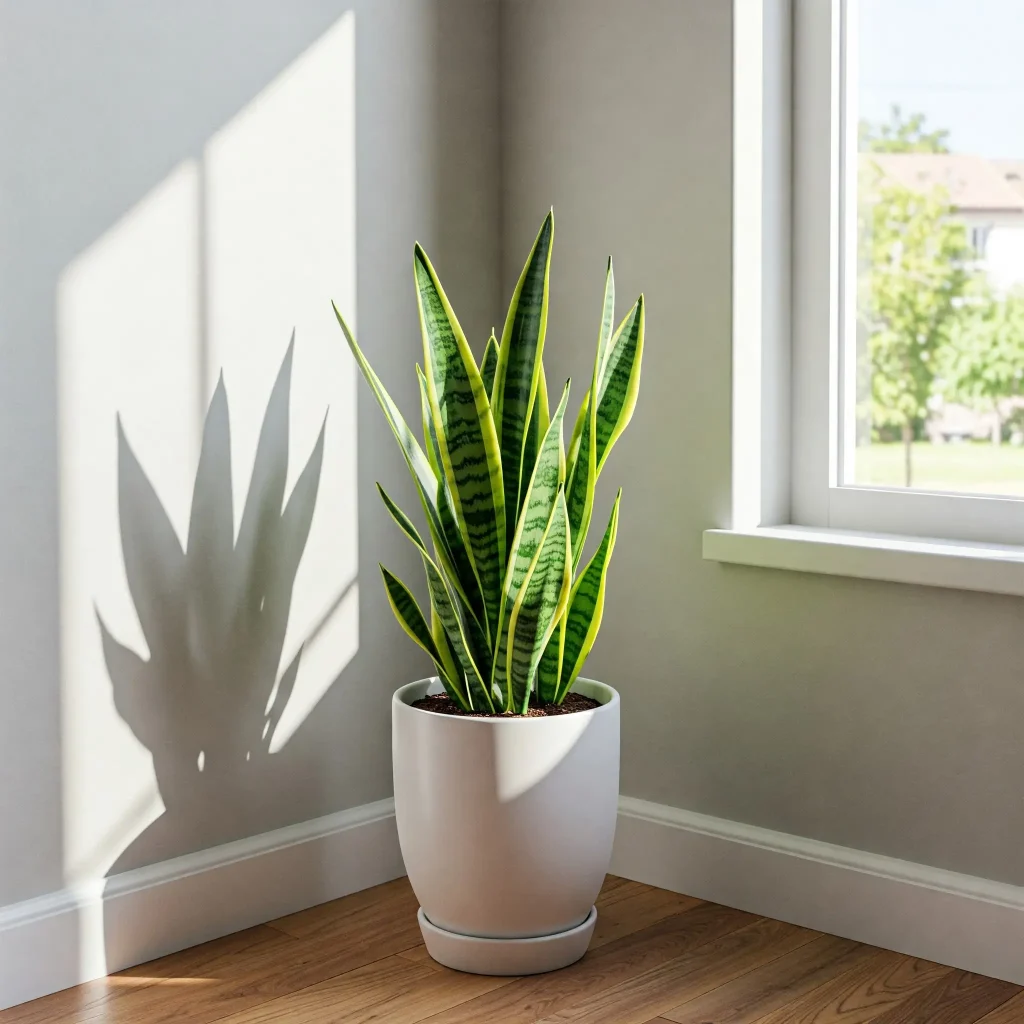Snake plants (Dracaena trifasciata), with their striking appearance and low-maintenance care, are a favorite among indoor gardeners.
If you have young children or pets, you may be asking: Are snake plants toxic to humans?
Yes, snake plants are mildly toxic to humans, but they are generally safe when handled properly.
In this guide, we’ll explore their toxicity, safety measures, and why these plants make an excellent addition to your home.

What Makes Snake Plants Toxic?
Snake plants contain saponins, natural compounds that protect them from pests. While these compounds are harmless to touch, ingesting them or coming into contact with the sap can lead to mild irritation.
Key takeaway: Saponins protect the plant but can cause mild skin or stomach irritation if mishandled.
How Dangerous Are Snake Plants?
For Adults
Snake plants are generally low-risk for adults. The most common issue is mild skin irritation if sap contacts sensitive skin or if the leaves are ingested.
For Children
While the effects are typically mild, ingestion of larger amounts of snake plant material can cause digestive upset. Always exercise caution around children.
For more on how snake plants affect babies, visit Snake Plants Toxicity to Babies.
Are Snake Plants Safe to Touch?
Yes, touching snake plants is generally safe for adults and children. However, those with sensitive skin may experience mild irritation from the sap.
Pro tip: Wear gloves when repotting or trimming to avoid direct contact with the sap.
Symptoms of Exposure to Snake Plants
If Ingested:
- Nausea
- Vomiting
- Diarrhea
These symptoms are temporary and typically resolve within a few hours.
If Sap Contacts Skin:
- Mild itching
- Redness
- Irritation
These symptoms usually fade after washing the area with soap and water.
Rare Severe Reactions:
In rare cases, individuals with saponin allergies may experience swelling or difficulty breathing. Seek medical attention immediately if these symptoms occur.
Why Snake Plants Are Still Safe to Keep

Despite their mild toxicity, snake plants continue to be a favorite choice for many homes. Here’s why:
- Air Purification: Snake plants are excellent at filtering harmful toxins like formaldehyde and benzene, making them an excellent addition to any indoor space.
- Low Maintenance: They thrive with minimal care and are perfect for busy plant owners.
- Aesthetic Appeal: With their upright leaves, snake plants add a modern touch to any room.
Quick Tip: To enjoy their benefits worry-free, place your snake plant in an area that’s out of reach of children and pets.
How to Handle Snake Plants Safely
Tips to Prevent Accidental Exposure:
- Place the plant out of reach of children and pets.
- Use gloves when repotting, trimming, or handling the plant.
- Wash your hands thoroughly after handling the plant.
- Educate children about the dangers of chewing on plants.
- If gifting a snake plant, include a note about its toxicity to ensure safe handling.
What to Do If Exposed:
In Case of Ingestion:
- Rinse the mouth with water.
- Drink a glass of water.
- Monitor for symptoms and seek medical advice if necessary.
For Skin Irritation:
- Wash the area with soap and water.
- Apply a soothing lotion if needed.
- Seek medical attention if severe symptoms occur.
Quick Safety Checklist for Snake Plants
- Place out of reach of children and pets.
- Wear gloves when handling the plant.
- Wash hands after contact.
Frequently Asked Questions (FAQs)
Can snake plants be dangerous to humans?
No, they are not dangerous to humans. At most, they cause mild symptoms if ingested or touched.
Can snake plants cause severe reactions in humans?
Severe reactions are rare. Most people experience mild symptoms like redness or itching after contact with the sap.
Are snake plants safe for kids?
Yes, as long as they are placed out of reach and children are taught not to chew on them.
Are snake plants more dangerous for pets?
Yes, pets like cats and dogs are more sensitive to saponins, which can cause symptoms like vomiting or diarrhea if ingested.
If you’re a pet owner, read more in Are Snake Plants Toxic to Dogs?
What part of the snake plant is toxic?
The entire plant contains saponins, with the highest concentration found in the leaves.
Can snake plant exposure cause skin irritation?
Yes, some individuals may experience mild irritation from touching the sap.
Wrapping Up
Snake plants are mildly toxic to humans, but with proper handling precautions, they’re a safe and stylish addition to any home. Their air-purifying properties, easy care, and aesthetic appeal make them a favorite among plant enthusiasts.
By following simple safety measures, you can enjoy the beauty and benefits of snake plants without worry.
Expert Tips and Resources
- ASPCA: Check out the ASPCA’s list of toxic and non-toxic plants for more information on safe indoor greenery.
- National Library of Medicine: Learn about saponins and their effects, which are the compounds responsible for the mild toxicity in snake plants.




